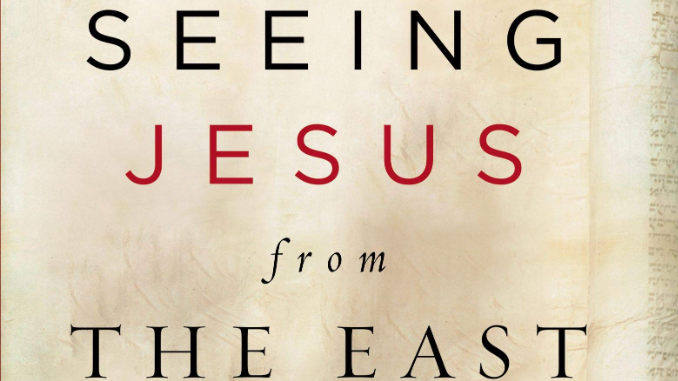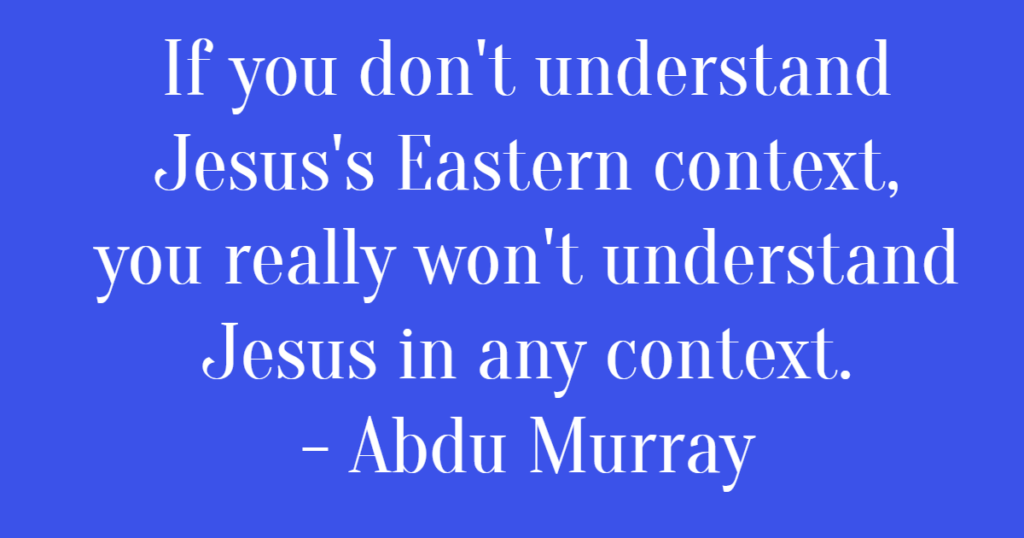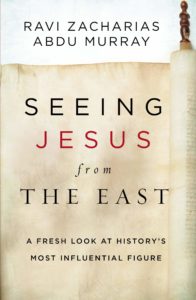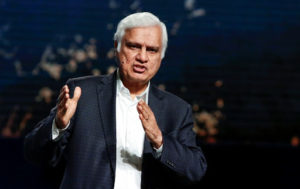
Podcast: Play in new window | Download
Subscribe: Apple Podcasts | RSS
The world of Scripture is vastly different than my life here in the 21st century western world. As I’ve spent my life digging into Scripture, I’ve learned that a key to interpreting it well is understanding the culture it came in. Jesus transcends time and culture, but understand his time and culture is key to understanding his transcendence. Seeing Jesus from the East gives me a perspective that I cannot give myself: two men with Eastern-minded backgrounds transplanted into the West helping to bridge the cultural barrier in Christianity. To better understand this perspective, I spoke with Abdu Murray.
The Interview | Seeing Jesus from the East
This excerpt has been lightly edited for brevity and clarity. You can listen to the full interview by clicking the play button above or subscribing at Apple Podcasts, Stitcher, Spotify, or wherever you listen to podcasts.
Josh Olds: I don’t mean this to be an antagonistic question, but I think for a lot of American Christians in the West, they’re asking “Why is this the perspective that we should even consider?”
Abdu Murray: If you don’t understand Jesus’s Eastern context, you really won’t understand Jesus in any context. The reason is because Jesus lived, breathed, and did his ministry in the East. If you understand the context, or the way in which Easterners speak to each other, I think things will become more enriched and enlightening. And you’ll get a better picture of Jesus in all of his humanity in the most important and pressing times of history.
But the second reason is that Jesus addressed issues that we in the West in the 21st century West are still wrestling with. And he wrestled with them. And he actually provided solutions for them in a context where it was even more difficult than in our day for those solutions to take effect outside of the Christian world.

Josh: There can be a tendency, I think, to think of the Easternness of Jesus and think “oh, they’re going to talk about him being a guru or a mystic.” How do you counteract that?
Abdu: And this is interesting because this is such a good Question. Ravi Zacharias has an entire chapter where his entire point is that even if you look at the mystics of the East, the gurus themselves need a savior. And so he’s pointing out that the mysticism that is often associated with the East isn’t itself enough. Because we need something that’s based on actual history, based on actual interaction with humanity, but isn’t based on esoterica…Jesus’s message is filled with Easternness in the cultural way he speaks, but it’s not Eastern in the sense of the religious way in which we come to think of, you know, a pantheistic worldview—whether it’s Hinduism or Buddhism, or other different pantheistic ideas. So that’s not what’s going on here. What Jesus does is he speaks to the eastern cultural way.
The Christian faith is not a white faith. And I think that you pointed out earlier that people often harken back to the European Christianity. When they think of church history, you know, they don’t go back much further than the 1500s, when the Protestant Reformation happened. Well, there’s a history long before that.
And when you look at Jesus in His original context, in the New Testament in the earlier document, you see a specific Easternnesss. So I think the characterization, Josh, is that people think of Christianity as imperialistic religion, and Jesus is the icon of white imperialism. The reality is that it wasn’t the white West that influenced Christianity, such that it became a tool to oppose brown people. It’s that it’s an olive-skinned religion, one that every page is sort of soaked in the olive oil, and in the spices and the curries of the time. And it is the olive skin, the eastern religion that changed the Roman empire that changed the west for the good.
The Book | Seeing Jesus from the East
 In the West Jesus is usually seen through one lens, that of Western reasoning and linear thought. As the world becomes smaller and more people are brought to our door, a broader view of Jesus is needed, one that can be grasped by Easterners and can penetrate the hearts and imaginations of postmodern Westerners.
In the West Jesus is usually seen through one lens, that of Western reasoning and linear thought. As the world becomes smaller and more people are brought to our door, a broader view of Jesus is needed, one that can be grasped by Easterners and can penetrate the hearts and imaginations of postmodern Westerners.
In Seeing Jesus from the East, Ravi Zacharias and Abdu Murray capture a revitalized gospel message through an Eastern lens, revealing its power afresh and sharing the truth about Jesus in a compelling and winsome light. Incorporating story, honor, vivid imagery, sacrifice, and rewards, Seeing Jesus from the East calls readers, both Eastern and Westerns alike, to a fresh encounter with the living and restless Jesus.
The Authors | Ravi Zacharias
 Ravi Zacharias is an internationally renowned speaker, author, and apologist. He is the author of nearly 30 books and served as the Chairman of the Board of Ravi Zacharias International Ministries until his death.
Ravi Zacharias is an internationally renowned speaker, author, and apologist. He is the author of nearly 30 books and served as the Chairman of the Board of Ravi Zacharias International Ministries until his death.
The Authors | Abdu Murray
 Abdu is a speaker and Senior Vice President of Ravi Zacharias International Ministries. He is the author of four books, including his latest book with Ravi Zacharias, Seeing Jesus From the East – A Fresh Look at History’s Most Influential Figure. For most of his life, Abdu was a proud Muslim who studied the Qur’an and Islam. After a nine-year investigation, Abdu discovered that the historic Christian faith alone answers the questions of the mind and the longings of the heart.
Abdu is a speaker and Senior Vice President of Ravi Zacharias International Ministries. He is the author of four books, including his latest book with Ravi Zacharias, Seeing Jesus From the East – A Fresh Look at History’s Most Influential Figure. For most of his life, Abdu was a proud Muslim who studied the Qur’an and Islam. After a nine-year investigation, Abdu discovered that the historic Christian faith alone answers the questions of the mind and the longings of the heart.
Abdu has spoken to diverse international audiences and has participated in debates and dialogues across the globe. He has appeared as a guest on numerous radio and television programs all over the world and hosts the podcast The Defense Rests.
Abdu holds a BA in psychology from the University of Michigan – Ann Arbor and earned his Juris Doctor from the University of Michigan Law School. As an attorney, Abdu was named several times in Best Lawyers in America and Michigan Super Lawyer.
Abdu lives in the Detroit, Michigan, area with his wife and their three children.
